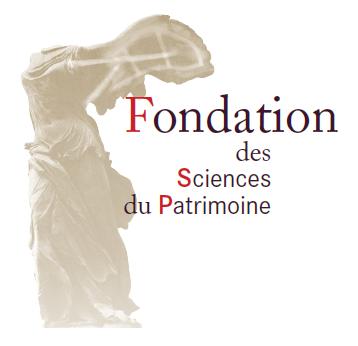Presentation
The Foundation for Cultural Heritage Sciences structures research on tangible cultural heritage.
It is a French partnership foundation running two state-funded projects, Patrima and Patrimex, in the framework of “Investments for the future” programmes. It was created in 2013 under the patronage of the French Ministry of Culture.
The Foundation generates new research topics and creates new practices in the heritage field, by bringing together specialists from various disciplines (physic-chemical and life sciences, information science, humanities and social sciences) to pool their expertise and knowledge. It fosters the development of collaborations between cultural institutions and universities.
It structures and funds research on tangible cultural heritage along three main lines:
- development of a more intimate knowledge of heritage
- improvement of conservation-restoration processes
- promotion of better dissemination of knowledge on heritage.
The Foundation is run by a board of directors and a scientific committee. These two boards are composed of experts belonging to the Foundation’s partner institutions. They also consult external experts, in particular for the projects’ selection.
The Foundation counts more than 15 members, the first five being the founding ones:
- Cergy-Pontoise University
- Versailles-Saint-Quentin-en-Yvelines University
- The Louvre Museum
- The Palace of Versailles (Château de Versailles)
- The French National Library (Bibliothèque nationale de France)
- The French National Archives (Archives nationales)
- The National Institute for Cultural Heritage (Institut national du patrimoine)
- The Quai Branly Museum
- The Centre for Research and Restoration of the Museums of France (Centre de recherche et de restauration des musées de France, C2RMF)
- The Centre for Research on Preservation (Centre de recherche sur la conservation, CRC), consisting of 3 teams: the CRCC team (Centre for Research on the Preservation of Collections), the LRMH team (Historical Monuments Research Laboratory) and the ECR team (Conservation and Research Team – the Museum of Music)
- The Ancient Materials Research Platform IPANEMA (Institut photonique d’analyse non-destructive européen des matériaux anciens)
- The Archaeomaterials and Alteration Prediction Laboratory (Laboratoire archéomatériaux et prévision de l’altération, LAPA)
- The team specializing on cultural heritage law of the Institute for Political Social Sciences (Institut des sciences sociales du politique, ISP)
- The National School of Architecture of Versailles (École nationale supérieure d’architecture de Versailles, ENSAV)
- The National School of Art of Paris-Cergy (École nationale supérieure d’arts de Paris-Cergy, ENSAPC)
The Foundation also includes partners such as the Rodin museum, the departmental Archives of Yvelines and Val-d’Oise, the National School of Palaeography and Archival Studies (École nationale des Chartes) and the National Audiovisual Institute (Institut national de l’Audiovisuel).
The Foundation is expanding its activities internationally:
- Non-French museums and research centres are involved in our projects as external partners.
- We are involved in European projects, such as COST Action WoodMusICK, which promotes research on and preservation of wood musical instruments.
- The Foundation is a key actor in E-RIHS France. E-RIHS is a European Research Infrastructure dedicated to the study of cultural and natural heritage materials. It provides transnational access to advanced technologies and scientific archives, as well as their related methods. ESFRI (European Strategy Forum on Research Infrastructures) and France have inscribed E-RIHS on their 2016 roadmaps for infrastructures. It should be operational by 2022.
- The Foundation is setting up partnerships with foreign education and research institutions in the field of heritage sciences. For instance, it cooperates with the School of Cultural Heritage of Xi’an Northwest University (China) and builds exchanges with institutions of the Shaanxi province in charge of cultural heritage.
- A periodical call for project is specifically designed to enhance international mobility and cooperation. Open to every member of the Foundation, it enables both to host foreign professionals and researchers in France and to send our own experts abroad.

